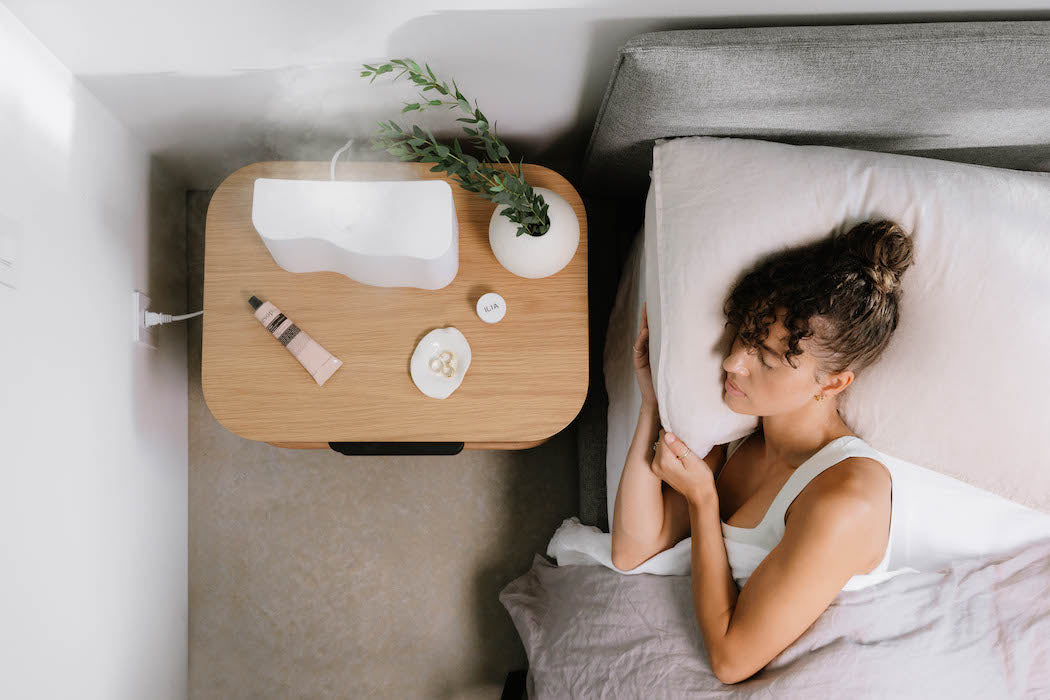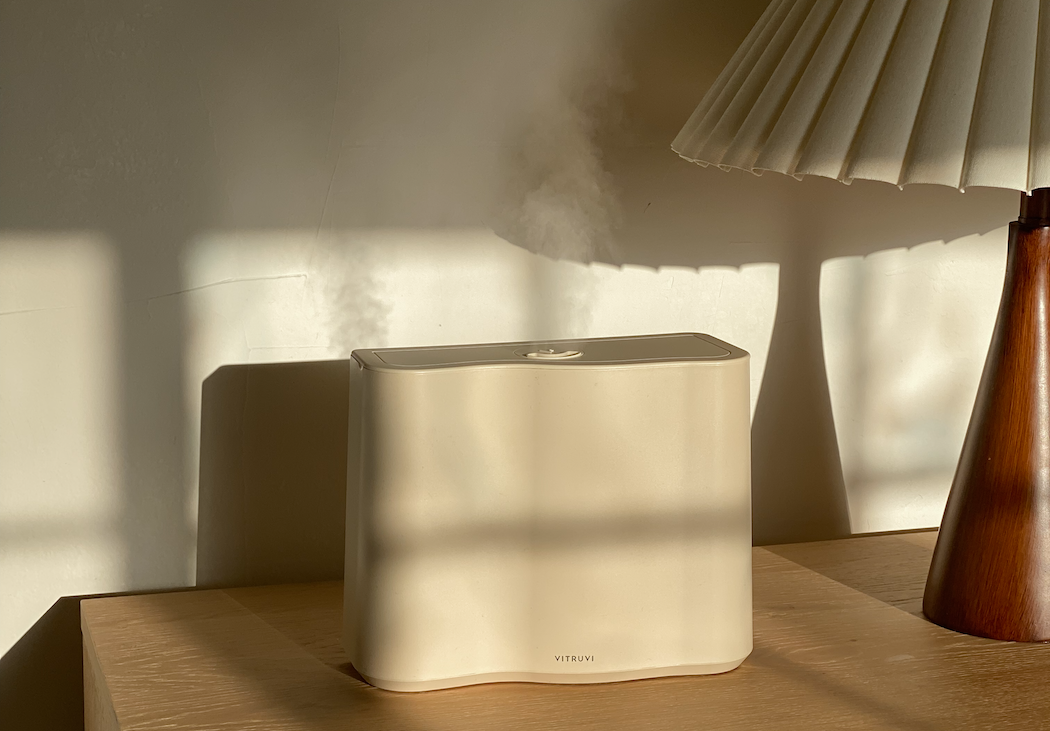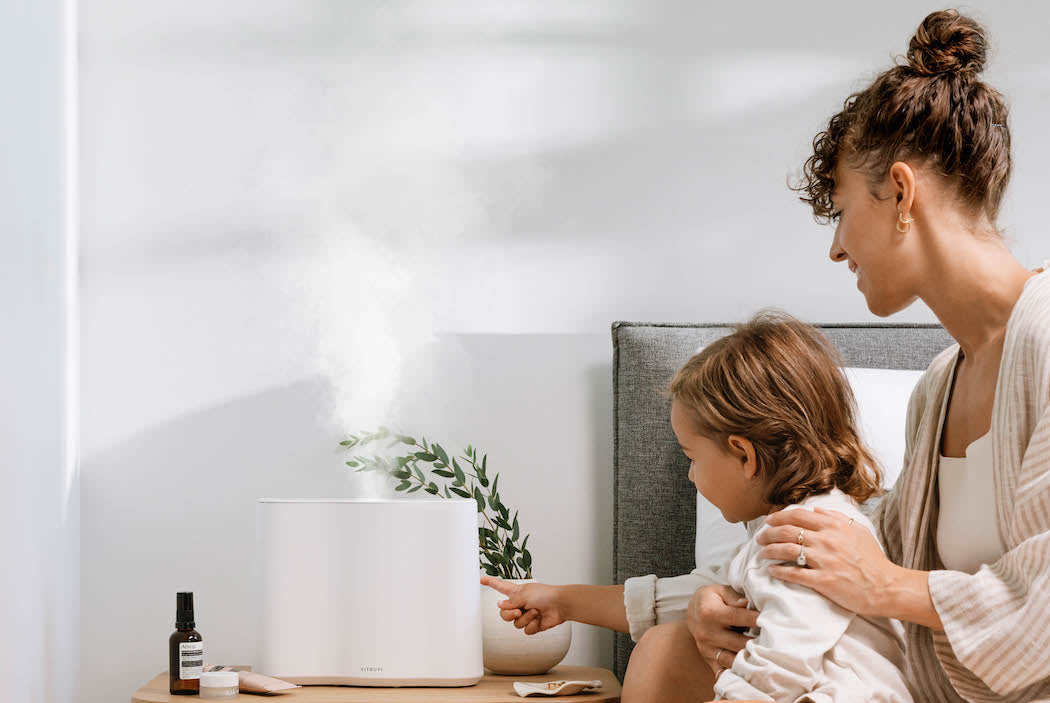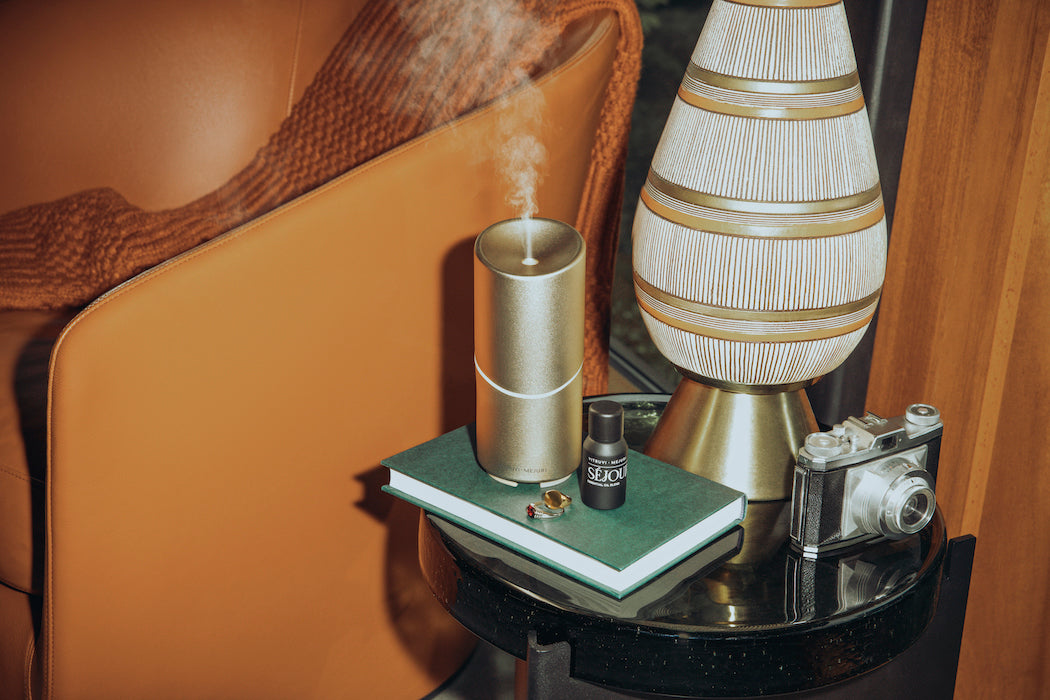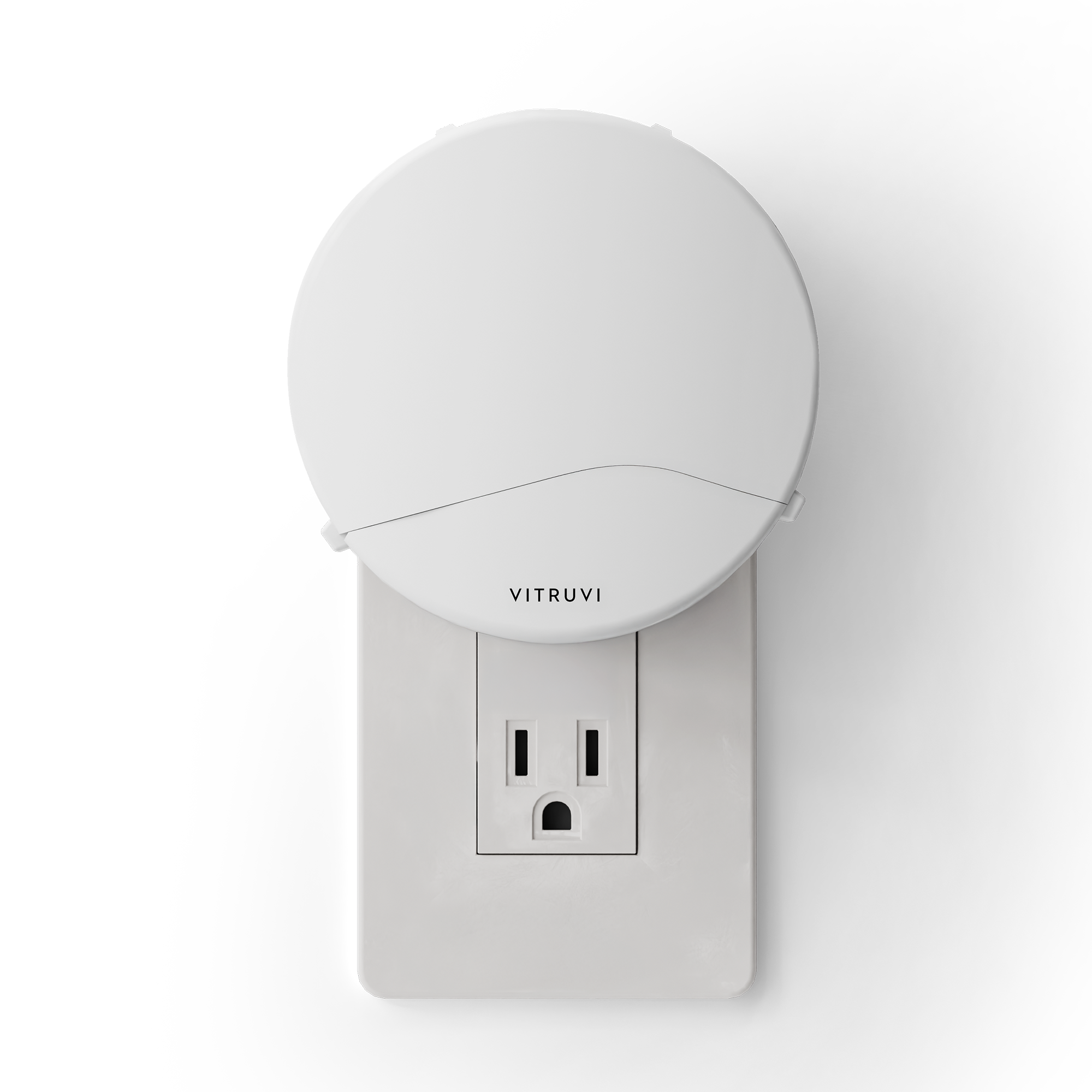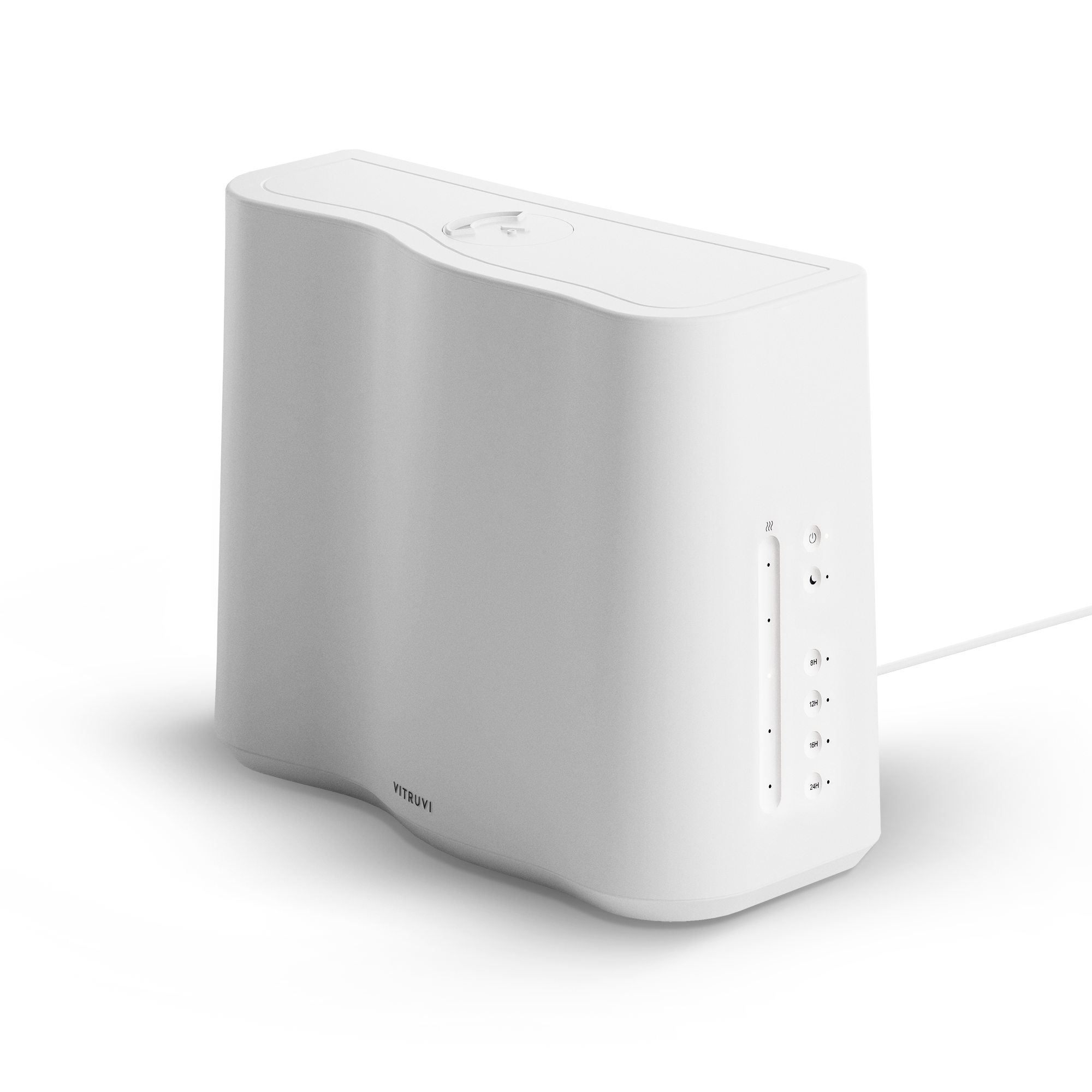More sleep: something we all want, need, and deserve. But how do we make the most out of our rest time? It’s not just about going to bed at a decent hour—it’s also about creating an environment that encourages your best-quality sleep. And one of the best ways to do that is with a humidifier.
Using a humidifier while you sleep
There are many benefits to using a humidifier overnight, including relief from itchy eyes, dry throats, snoring, congestion, and scratchy scalps. Combating all of these things helps you feel your best, thus giving you your best possible sleep. In addition, because it hydrates dry air to put your home back to its optimal humidity level (which is between 40% and 60%, for those curious), a humidifier helps your home and your body maintain a comfortable temperature.
Humidifiers for allergy and cold symptom relief
Let’s face it: if you’re suffering from a stuffy, runny nose or dry, itchy eyes, you’re not going to have a very good sleep. Whether it’s from allergies, a cold, or the flu, using a humidifier while you sleep can help drastically reduce these symptoms. By hydrating the air in your home, a humidifier combats allergens and helps to relieve congestion, add moisture to your eyes and throat, and soothe any pesky dryness. Even chapped lips and cracked skin can benefit from sleeping with a humidifier.
Using a humidifier can also help prevent you from getting sick in the future, with this study finding that low humidity levels increase an airborne virus’ chance of being transmitted. By boosting your indoor air’s humidity level to an ideal range, you can help prevent the spread and infection of future illness in your home. Which, let’s be honest, is something that would help all of us sleep easier.
Humidifiers for snoring
Dry air is one of the most common causes of snoring. A humidifier combats this by turning water into a light mist, which adds natural moisture to your air. The result? A clearer throat passageway. Which means that a humidifier can also help with sleep apnea (something that snoring is often itself a symptom of).
According to HealthCentral, “low moisture levels in the nose and a soft palate (the roof of your mouth, toward the back) promote snoring because air cannot move freely due to dryness and gets trapped. As a result, air starts to bounce around in the sinuses causing a vibration, or snore, that helps loosen moisture and promote airflow. Drinking plenty of water throughout the day and sleeping with a humidifier at night can bring moisture back to the sinus membranes and reduce snoring intensity.”
Humidified air care
Of course, just like your air can have too little humidity, it can also have too much. Which is why it’s important to use a humidity sensor to keep track of your air’s levels. Filters should be changed every three months to keep your mist as clean and pure as possible.
What humidifier to get
Vitruvi’s cool mist Cloud Humidifier is a great option for both its design-forward aesthetic and its performance-driven technology. Some of its award-winning sleep features:
- It lasts for up to 24 hours, so you can truly set it and forget it.
- It has a light-free night mode (great for any sensitive sleepers out there).
- It’s whisper-quiet, meaning it won’t distract you while you drift off.
- It has a removable and dishwasher-safe water bucket, making it super easy to refill and to clean.
- It’s small enough (and cute enough!) to sit on your nightstand.
The Cloud Humidifier won a coveted Architectural Digest Best Sleep Award, with the magazine saying that “the piece is a perfect addition to your nightstand and features a handy night mode and up to 24 hours of run time to ensure a comfortable sleeping environment.” Cloud also won an Esquire Home Award, with that publication saying that “if you live in a heater-ridden city apartment or any dry-winter dwelling, really, you need this.”
We couldn’t have said it better ourselves.

